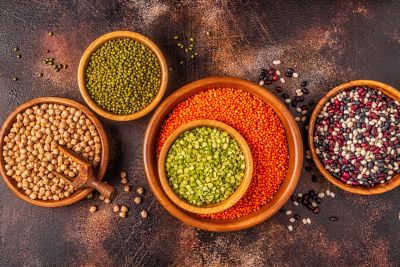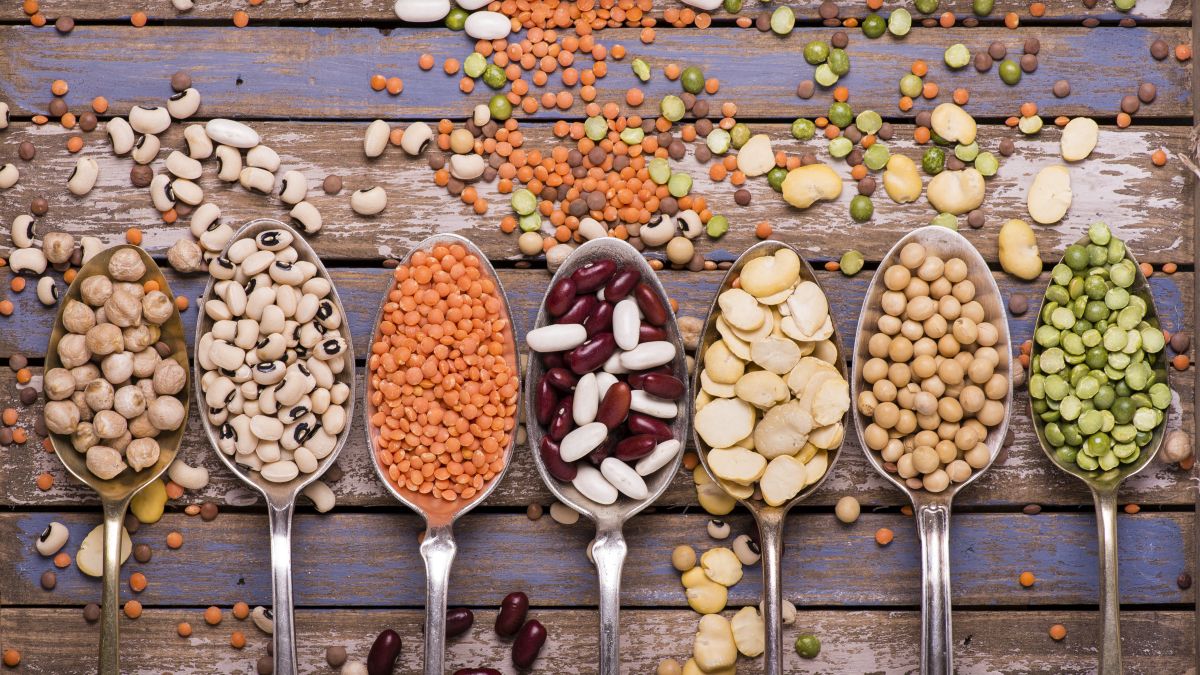A plentiful supply of powerful nutrients is essential in the cold winter months. But where can we get it? That’s simple: from pulses! Pulses like lentils, peas and beans are veritable power boosters. You’ll be surprised to see all they can do.
Pea soup, bean stew, or lentils with egg noodles may not sound spectacular, but don’t underestimate the power of pulses! Often seen as unimpressive “poor man’s food”, given a modern twist these traditional dishes now provide a great taste experience and an incredible range of valuable compounds that will keep you going while others are catching colds.
Meat-beating plant proteins
 Your body needs high-quality proteins for building up muscles and immune cells alike. Pulses contain more protein than any grains or vegetables do. The quality of pulse proteins even equals that of animal proteins. In addition, in combination, the proteins in pulses and grains form a perfect high-quality protein mix. So, bring on the lentils and egg noodles.
Your body needs high-quality proteins for building up muscles and immune cells alike. Pulses contain more protein than any grains or vegetables do. The quality of pulse proteins even equals that of animal proteins. In addition, in combination, the proteins in pulses and grains form a perfect high-quality protein mix. So, bring on the lentils and egg noodles.
Find out more about brilliant ways to combine plant proteins in the article More protein power with a clever combination.
A fount of vitamins and minerals
Pulses provide a plentiful supply of a wide range of vitamins and minerals more or less free of charge – in other words, with relatively few calories. These include extremely important ones for a well-functioning immune system, such as folic acid and vitamin B6, and iron and zinc. A 100-gram portion of (dry) pulses easily meets half of your entire daily requirement of folic acid and half of your iron requirement. On top of that, it supplies B vitamins and magnesium. Soybeans and lupins also feature lots of calcium.
Plant power on top
Last but not least, pulses also contain numerous secondary plant compounds that are actually meant to protect the plants themselves, but also do us good. So here you have it – a super protein and nutrient booster with lots of flavor, few calories, and huge health potential. What more could you ask for?
Note: Since everyone’s health history and nutritional needs are so different, please make sure that you talk with your doctor and a registered dietitian to get advice about the diet and exercise plan that‘s right for you.

